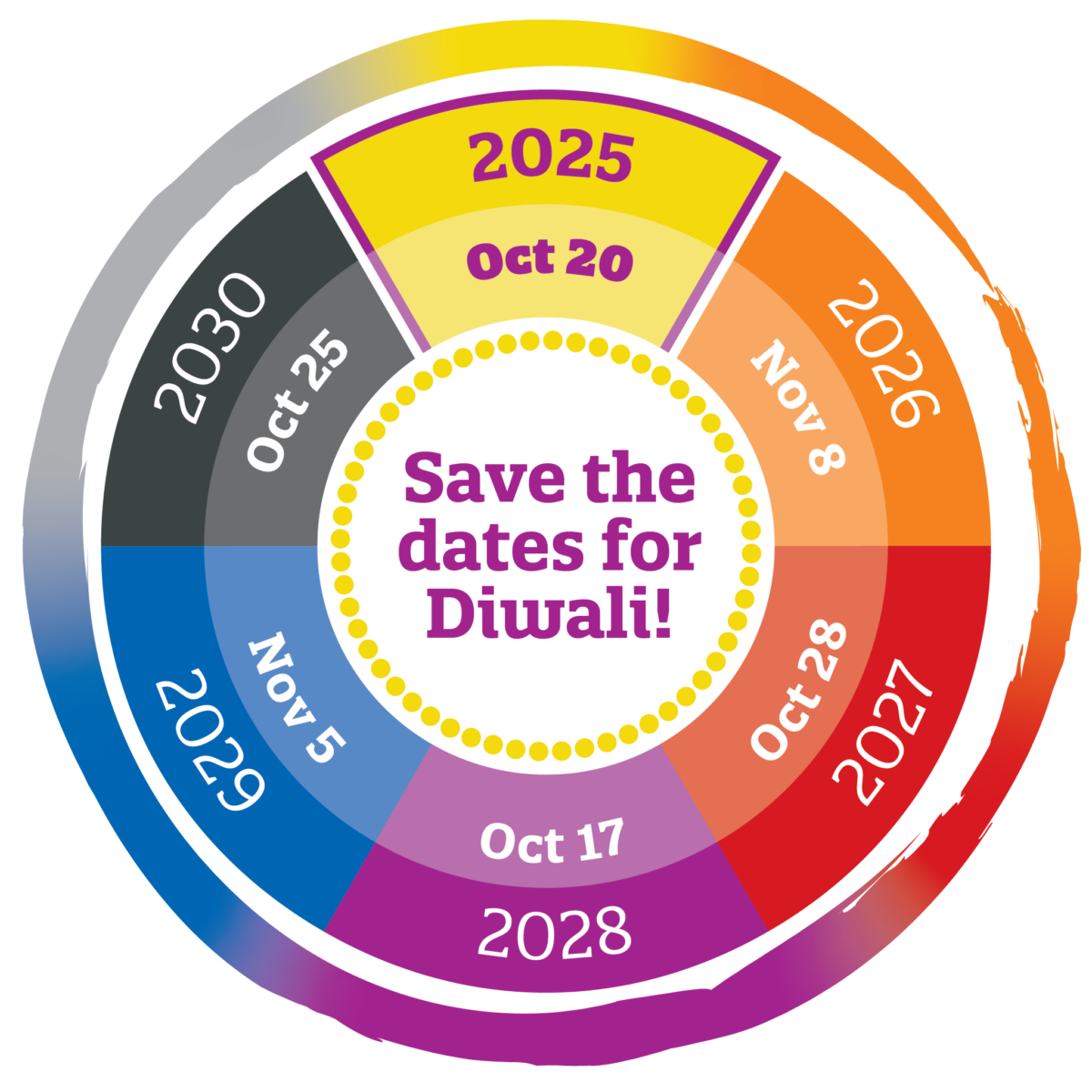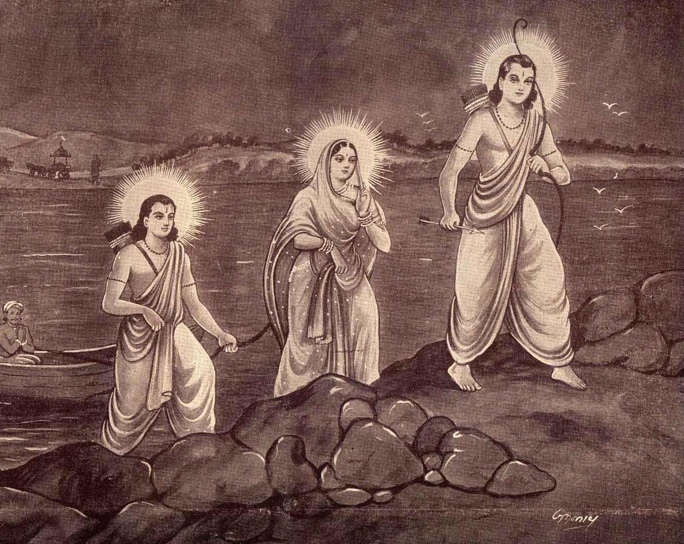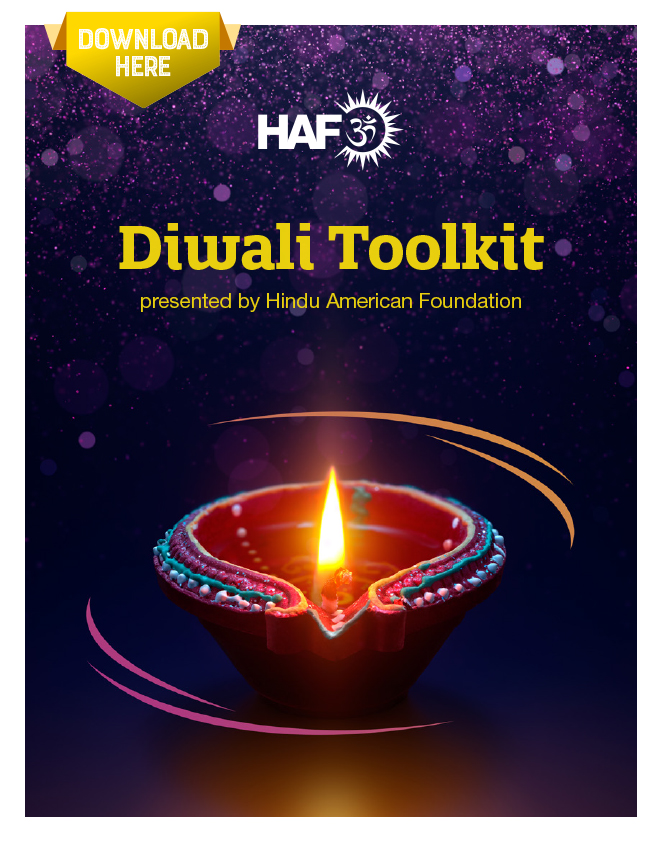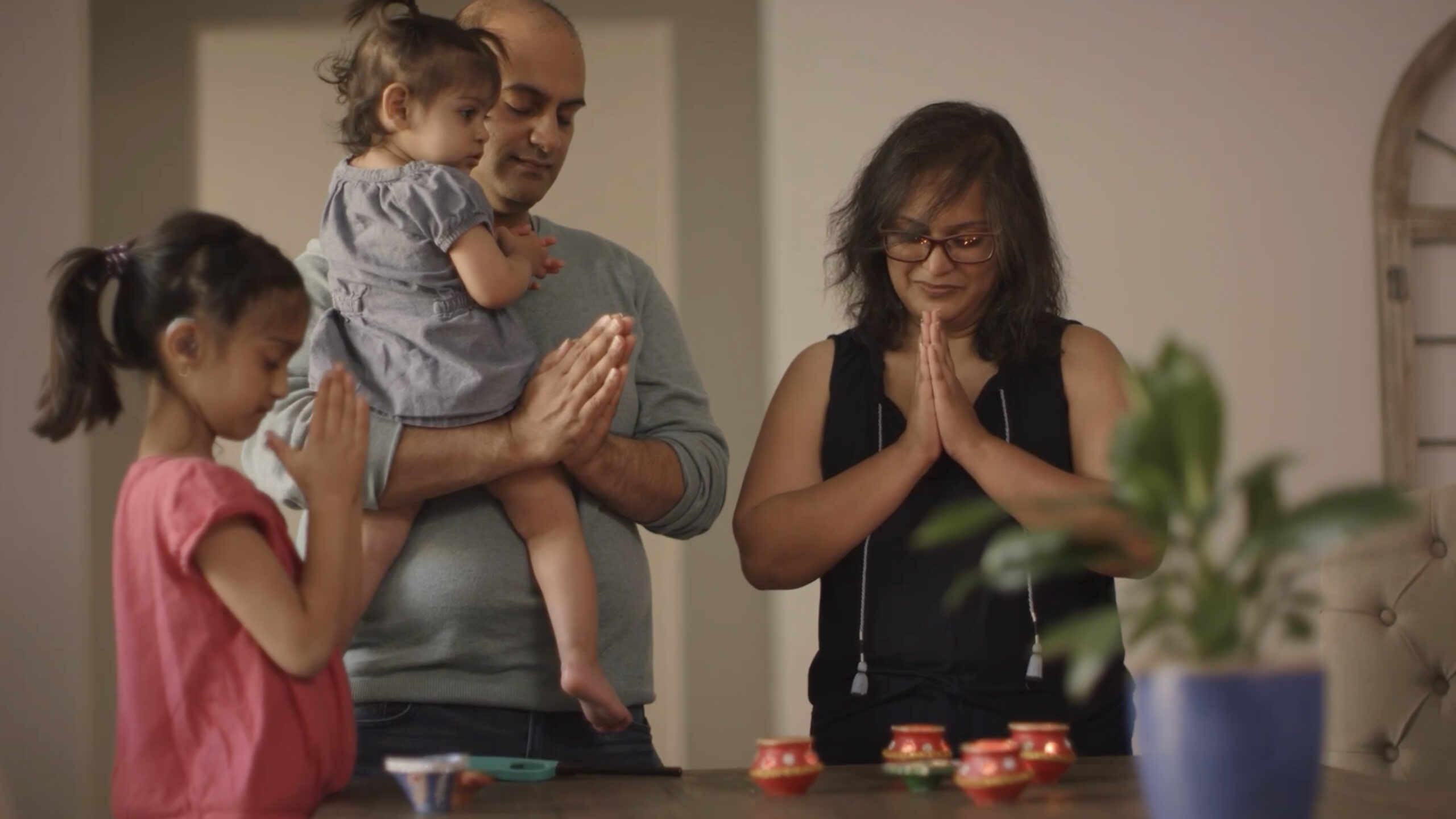Every autumn, as nights grow longer and the air turns crisp, more than a billion people around the globe gather to celebrate Diwali/Deepavali — the “festival of lights.” And our brand new two-minute animated video is designed to get you primed for learning all about one of the most sacred festivals in Hindu Dharma traditions!
What is Diwali?
Deepavali or Diwali is known as the “Festival of Lights” and is a Hindu holiday widely celebrated in India, in South Asia, and across the Hindu diaspora.
The word ‘Deepavali’ derives from Sanskrit and means “row of lights.” Festivities include the illumination of lights, candles, firecrackers, and diya (clay lamps) to symbolize the victory of good over evil, inner light over spiritual darkness, and knowledge over ignorance. Diwali is a time for gathering with loved ones, celebrating life, and committing to making the right decisions in life.

When is Diwali?
Like many Hindu holidays, Diwali is synchronized with the lunar calendar so the actual date varies from year to year.
Diwali typically falls between October and November.
This handy date wheel helps explain when Diwali is next!
Download GuideWhy Is Diwali celebrated?
Many Hindus recognize Diwali as a day celebrating the return of Prince Rama of Ayodhya, his wife Sita, and brother Lakshman after 14 years of exile. Prince Rama is considered to be an incarnation of Lord Vishnu and an embodiment of dharma or righteousness; and Sita is an incarnation of Lakshmi, who is the Goddess of wealth and prosperity. The residents of Ayodhya were overjoyed at the return of their rightful King and lit lamps in his honor. Thus, the entire city looked like a row of lights.
Other Hindus commemorate Diwali as the day Lord Krishna defeated the demon king Narakasura. For some regions of India, Diwali coincides with the Hindu New Year.
Ever since, people light lamps at Diwali to remember that light triumphs over dark, knowledge prevails over ignorance, and good triumphs over evil.

How is Diwali Celebrated?
Diwali is one of the most widely celebrated Hindu festivals in India and around the world. The rituals and customs associated with celebrating Diwali vary based on the regional traditions of India and the cultural customs that are popular in those areas. However, most families light diyas or candles in their homes and celebrate this special holiday by enjoying sweets and delicious food. Generally, Diwali is celebrated over five days with each day holding a special significance.
Is it only Hindus that celebrate Diwali?
Diwali is celebrated by Hindus, Jains, Sikhs, Buddhists, and people of Indian heritage and non-Indian heritage. Despite each faith having its own historical legends and celebratory events, the holiday represents the same symbolic victory of light over darkness, knowledge over ignorance, and good over evil.
Where is Diwali celebrated?
Celebrations can take place at home, in mandirs (local temples), community centers, and other gathering places. Diwali is celebrated by people around the globe.

Download Diwali Toolkit
- This free download provides 24 pages of robust materials to teach about Diwali, the “Festival of Lights.”
- Its activities are a comprehensive approach for use in both classrooms and at home.
- The toolkit includes several interactive ways to learn about the holiday, including a Diwali Fact Sheet, an Origins of Diwali reading, and lessons like Diya Round-Up and Rangoli Drawing.
Never miss a Hindu holiday
Check out our Hindu Holiday Guide to learn even more about Diwali and other days of significance to Dharama.
Your go-to guide for traditions, observations, and celebration.
Go to the Hindu Holidays Guide







































